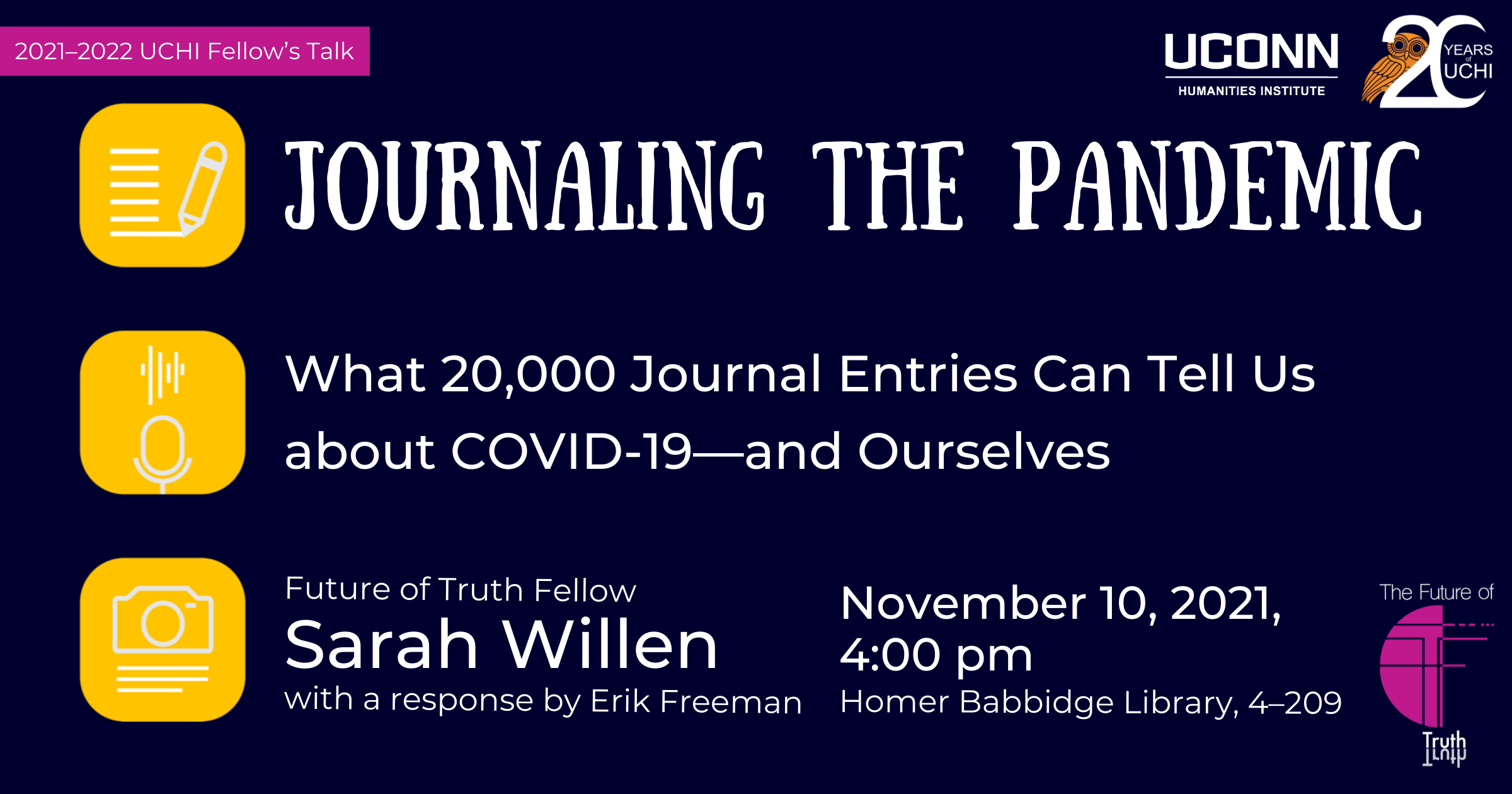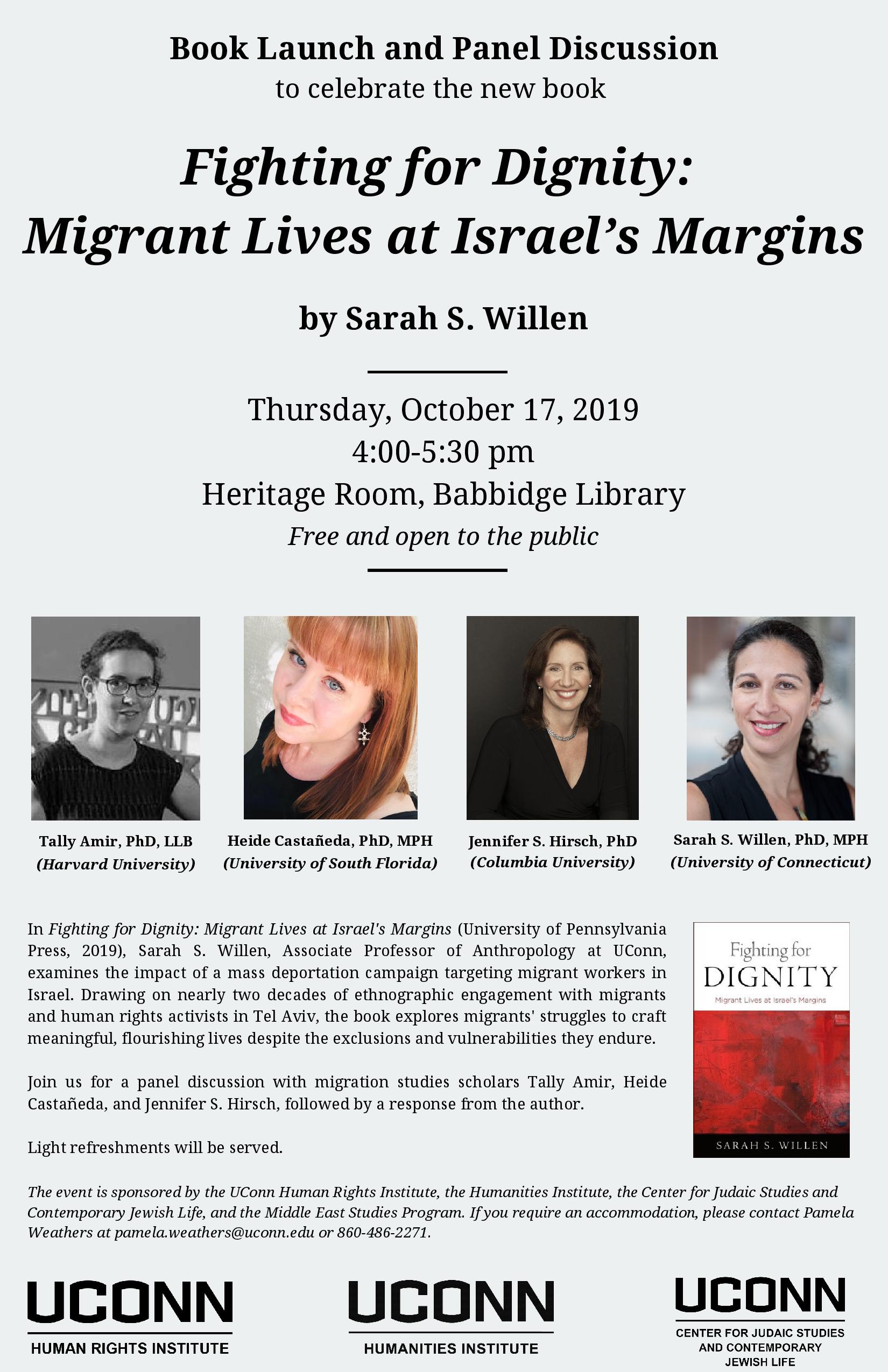Journaling the Pandemic: What 20,000 Journal Entries Can Tell Us About COVID-19—and Ourselves
Sarah Willen (Associate Professor, Anthropology, UConn)
with a response by Erik Freeman (History, UConn)
Wednesday, November 10, 2021, 4:00pm. Homer Babbidge Library, 4-209.
Add to Google calendar Add to Office 365 calendar Add to other calendar
The event will also be livestreamed with automated captioning.
To attend virtually, register here
What does it mean to keep a journal, and why might someone choose to journal about COVID-19? What belongs in a pandemic journal, and what might journalers hope to accomplish by keeping one? In this talk, anthropologist Sarah Willen engages these questions by introducing the Pandemic Journaling Project (PJP), a combined journaling platform and research study she co-created in May 2020 that lets anyone around the world produce a weekly record of their pandemic experiences by uploading text, audio, and photographs using a smartphone or other device. By October 2021, over 1,600 people in more than 50 countries had contributed over 20,000 journal entries. How are members of PJP’s diverse journaling community using this online space to chronicle the impact of the pandemic on their everyday lives? What can we learn—about COVID-19, our times, ourselves, and scholarship itself—by studying the COVID-19 journals people keep? Join us and find out.
Sarah S. Willen is Associate Professor of Anthropology at UConn and Director of the Research Program on Global Health and Human Rights at the university’s Human Rights Institute. A critical medical anthropologist with a strong phenomenological bent, she has published widely on topics ranging from the sociopolitical dynamics and lived experiences of illegalized migration and human rights activism, to everyday understandings of deservingness, dignity, and flourishing in Israel/Palestine and the U.S. She is author or editor of four books, five special issues, and many articles and book chapters, including the multiple award-winning monograph, Fighting for Dignity: Migrant Lives at Israel’s Margins (University of Pennsylvania Press, 2019). Sarah is Principal Investigator of ARCHES (the AmeRicans’ Conceptions of Health Equity Study), a three-year, interdisciplinary study funded by the Robert Wood Johnson Foundation, and Co-Founder of the Pandemic Journaling Project—the focus of her UCHI talk and project.
Erik Freeman is the Draper Dissertation Fellow at the University of Connecticut’s Humanities Institute and a doctoral candidate in UConn’s Department of History. He earned a B.A. in French at Brigham Young University in 2008 and an M.A. in History at Brandeis University in 2013. Since 2013, he has served as an instructor of history at Choate Rosemary Hall, in Wallingford, Connecticut, where he has taught courses on environmental history, environmental policy, American history, European history, and the American West. Erik’s article “‘True Christianity’: The Flowering and Fading of Mormonism and Romantic Socialism in Nineteenth-Century France,” won the Best Article Award at the Communal Studies Association’s annual conference in 2018, and the Best International Article Award from the Mormon Historical Association in 2019.
If you require accommodation to attend this event, please contact us at uchi@uconn.edu or by phone (860) 486-9057. We can request ASL interpreting, computer-assisted real time transcription, and other accommodations offered by the Center for Students with Disabilities.



